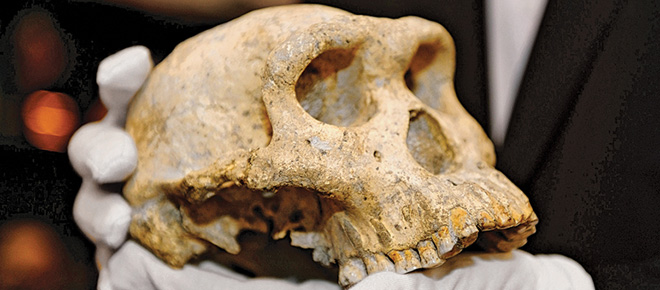Good news, bad news
A crack down on illegal unpaid internships, wile decapitation videos are now okay on Facebook
Vano Shlamov / AFP / Getty Images
Share

Good News
A fair day’s wage
Thanks to Toronto MP Andrew Cash, ever-doomed millennials may finally catch a break. The NDP MP introduced a private member’s bill in the House of Commons this week that seeks to crack down on illegal unpaid internships. A long time coming, the National Urban Worker Strategy would require lawmakers at both the provincial and federal level to fill in the legislative gaps that leave unpaid workers vulnerable to mistreatment: Vancouver’s Fairmont Waterfront Hotel, for instance, came under fire last month for offering an unpaid “busperson” internship.
Lost and found
Parents of missing children can take comfort in the fact that a little girl’s rescue from a Greek Roma settlement this week has brought new-found interest to child abduction cases all over the world. The blond-haired, blue-eyed girl, known as Maria or, in the Greek press, “the white angel,” is in the custody of a charity while authorities track down her biological parents. An anonymous tip made shortly after Maria’s story broke in the news led to the rescue of another blond-haired girl from her abductors in a Roma settlement—this one in Dublin.
Down Under equality
Marriage equality marches forward. The Australian Capital Territory became the first Aussie area to legalize gay marriage. The ACT, as it’s commonly known, is home to the country’s capital city, Canberra. Opponents of gay marriage—Prime Minister Tony Abbott included—say they will challenge the 9-8 vote in court. Meanwhile, newly elected New Jersey Sen. Cory Booker officiated the weddings of seven same-sex couples at Newark City Hall following the legalization of gay marriage in New Jersey last week.
Bloated no more
According to a new U.S. government report, American carbon emissions were at their lowest level last year since 1994. Contributors to this surprising finding include a warm winter and an increase in natural gas use at the expense of dirtier coal. In other equally optimistic, albeit stranger, news, Argentine scientists say they have discovered a way to transform the gas created by a cow’s digestive system into fuel. Cow burps: the power of the future.
Bad News
Offensive setback
The RCMP had to break up violent anti-shale gas protests last week in New Brunswick when Aboriginal and environmental activists threw Molotov cocktails and destroyed six police vehicles. More than 40 people were arrested. Research has shown that Canadian attitudes are “hardening” on Aboriginal issues. (Fewer than half of Canadians, according to an Ipsos Reid poll from earlier this year, believe blocking roads and railways is an appropriate form of protest.) Chances are good they will harden further in light of actions like these; a shame when they represent only a small minority of Aboriginal voices.
Double jeopardy
An Iranian man convicted of smuggling crystal methamphetamine three years ago survived a botched hanging last week, only to be sentenced to death again by Iran’s theocratic government. Human rights activists say the man—identified only as Alireza M.—should be released under international law, which prohibits “cruel and unusual punishment.” In a twisted act of mercy, the ayatollah will consider a pardon, not because of international law, but because smuggling drugs is not directly forbidden in the Quran.
Unwelcome eavesdroppers
There seems to be no end to the embarrassing spy allegations against the U.S. French President François Hollande is calling for tighter data security this week in light of news that the U.S. National Security Agency listened in on 70 million French phone calls and text messages this past winter. Our own government’s spying has made it enemies, too, and not just in Brazil: The British Columbia Civil Liberties Association announced it will sue the government’s electronic eavesdropping agency for engaging in “broad and unchecked” surveillance.
Drawing the line
Facebook displayed some creative moral gymnastics this week. The social network lifted its ban on “decapitation videos” while promising, as a consolation, to issue warnings for violent content on its site. A ban on nudity still persists, though—and, apparently, a ban on pubic hair, too: Toronto artist Petra Collins was recently banned from Facebook-owned Instagram for posting a photo of her untamed bikini line.